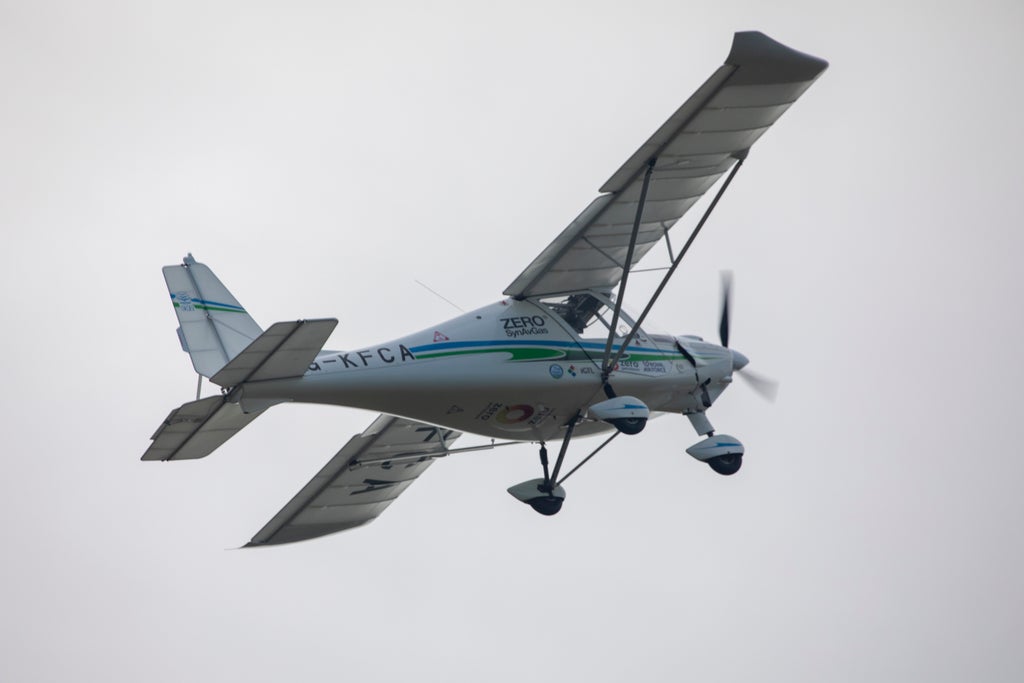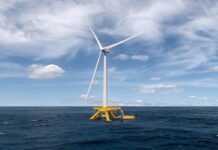[ad_1]

The RAF has set a new world record after completing the first successful flight using only synthetic fuel.
Earlier this month, Group Captain Peter “Willy” Hackett completed a short flight out of Kemble Airfield, Cotswold Airport on an Ikarus C42 microlight aircraft – the first flight ever powered entirely by synthetic gasoline.
The synthetic gasoline used in the flight, which has been awarded a Guinness World Record, was Zero Petroleum’s UL91 fuel.
The gasoline was manufactured in Orkney by extracting hydrogen from water and carbon from atmospheric carbon dioxide, and combining these ingredients using locally generated wind, and tide and wave energy.
This process can also be used to create a range of “drop-in” fuels, which are a substitute for fossil-based aviation fuels and require no engine modification.
Paddy Lowe, the chief operating officer of Zero Petroleum, said that the synthetic gasoline had been developed “in just five months” and yet it ran successfully in the aircraft without any modification to the plane or the engine.
He added that measurements of the engine following the test flight “showed no difference in power or general performance compared to standard fossil fuel”.
The innovation behind the synthetic-fuel powered flight comes from the RAF’s Project MARTIN, which was initiated by the Rapid Capabilities Office in June. Early data shows that this fuel has the potential to save between 80 and 90 per cent of carbon used per flight.
Jeremy Quin, Minister for Defence Procurement said that the flight was “a world first innovation”.
“It shows the determination of UK Armed Forces to drive forward creative ideas on net zero alongside meeting operational commitments,” he said.
Air Chief Marshal Sir Mike Wigston echoed these sentiment, saying: “Climate change is a transnational challenge which threatens global resilience and our shared security and prosperity. I am determined to tackle this head on and have set the Royal Air Force the ambitious goal to be net zero by 2040.
“The way we power our aircraft will be a big part of achieving that goal, and this exciting project to make aviation fuel from air and water shows how it might be done.”
Prior to the ground-breaking flight, Zero Petroleum’s synthetic fuel was tested extensively with CFS Aero, a component overhaul facility in Coventry that repairs and overhauls a wide range of airplane engines for commercial and military suppliers. From this testing, it was found that engines performed as though running on fossil fuels, but ran at lower temperatures, suggesting that the synthetic fuel could increase engine lifespans while reducing carbon emissions.
Leveraging this innovation and working towards the government’s goal of net zero emissions by 2050, the RAF has set an internal goal of becoming a net zero force by 2040 with their first net zero airbase by 2025.
Have you got a story you would like us to report on? Contact us by clicking here
[ad_2]
Source link













